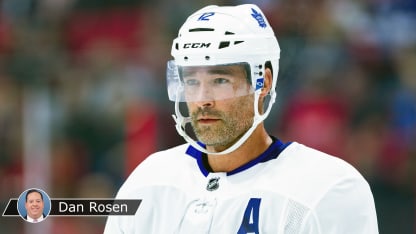Toronto, though, had to give Carolina a conditional first-round pick in the 2020 NHL Draft to make the trade work, a significant price to pay to shed a cap charge.
The pick is top-10-protected, meaning the Maple Leafs would keep it if it falls in the top 10 next year and instead give the Hurricanes their first-round pick in the 2021 NHL Draft. Toronto also acquired a sixth-round pick in the 2020 draft and gave Carolina its seventh-round pick in 2020.
"In our situation with our cap, we didn't want to do one of those trades where it was moving salary or a cap hit that was going to take somebody off our roster," Maple Leafs GM Kyle Dubas said. "So you start looking at your draft capital. When you start talking about a $6.25 million cap hit and $4 million in cash, you have to pay a hefty price, and that's what we've done."
There is a chance the Hurricanes will buy out the remaining season on Marleau's contract, making him an unrestricted free agent. Even if they do, the first-round pick was their prize for helping the Maple Leafs gain some cap relief.
"If we can get him to play, it's a bonus, but we understand what the deal was," Carolina coach Rod Brind'Amour said. "It's a shot in the dark [for Marleau to play for the Hurricanes], and if it doesn't work out, that's not the big part of the deal."
The New Jersey Devils and Nashville Predators followed with the biggest trade of the day and potentially of the offseason. It too was all about the salary cap, necessary relief for the Predators and solid usage from the Devils.
New Jersey, which was flush with cap space, acquired defenseman P.K. Subban and his $9 million cap charge from the Predators for two draft picks and defensemen Steven Santini and Jeremy Davies.

